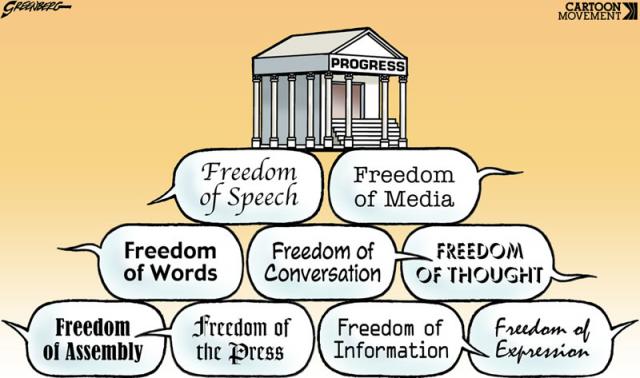Search
Democracy Links
Member's Off-site Blogs
freedom ....

from Crikey …..
'Hacking democracy': a tool to streamline our Right To Know
FREEDOM OF INFORMATION, FREEDOM OF INFORMATION LAWS, RIGHT TO KNOW
Australia has had freedom of information laws longer than the vast majority of countries that have them now, but they're under-used, says OpenAustralia Foundation director Dr Matthew Landauer in a video promoting their latest project, the FOI-enabling website Right To Know.
Launched today, Right To Know provides tools for anyone to submit FOI requests and track their progress, with the entire process open for anyone to read and comment. "The OpenAustralia Foundation has a history of doing these kind of projects that do the glue between government and people," said Henare Degan, another OpenAustralia Foundation director.
Those projects include the original OpenAustralia website that makes it easier to access Hansard transcripts of federal Parliament; PlanningAlerts.org.au, providing notification of local government planning applications and a mechanism for commenting on them; and election-monitoring site ElectionLeaflets.org.au.
Right To Know currently knows how to submit FOI applications to 361 different federal agencies.
"What it's doing is acting as a fancy email intermediary, so basically all of the exchange between the agency and the person making the request is actually through email," Landauer told Crikey.
This email exchange can end up being quite lengthy. "What often happens with these sorts of things is that people put in a request to find particular documents, then the agency goes 'oh no, there's too much. Can you be more specific?', and the person has to narrow it down," Landauer said. Requests might be limited to documents between a certain date, or relating to a certain person, or of a certain type.
The requests submitted during the site's testing phase have yielded only one successful result so far - a list of government domain names that was already posted on a website - but the process is starting to highlight differences in the style of response between different agencies.
"One agency, for instance, has pretty consistently asked for extensions," Laundauer said. "One agency was very plain-speaking, and answered a question that wasn't strictly an FOI request, and in some other cases it was very official, laying out exactly the timeline of things."
Right To Know has the potential to bombard agencies with vague or unstructured requests. Witness the enquiry about coal seam gas mining that's more polemic ("CSG merchants of death") than bureaucratese. But Landauer hopes the site will foster a long-term change in attitudes to FOI by exposing the process. And showing how easy it can be.
Both Laundauer and Degan refer to OpenAustralia's work as "hacking democracy". In a good way.
"I think the key word in this is 'hacks', and the software developer meaning of that is clever solutions to gnarly problems that are often experimental or quick-fix in nature, and in some sense you could view all of our projects as hacks, in a way, where we're looking at parts of the democratic process and seeing that you can apply a little trick to it to help improve it," Laundauer said.
"These are not the be-all and end-all of transparency in democracy. These are just our experiments right now to try to help improve things."
- By John Richardson at 28 Nov 2012 - 7:28pm
- John Richardson's blog
- Login or register to post comments
Recent comments
54 min 55 sec ago
1 hour 58 min ago
2 hours 30 min ago
3 hours 7 min ago
3 hours 32 min ago
3 hours 42 min ago
4 hours 54 min ago
7 hours 16 min ago
17 hours 1 min ago
17 hours 12 min ago